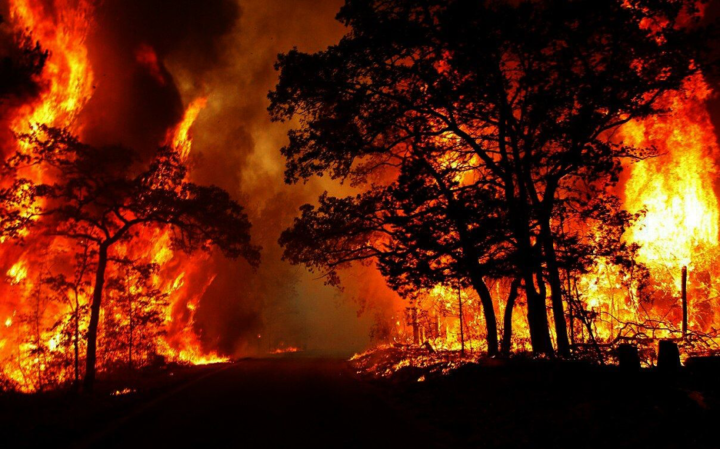The variety of its ecosystem makes it the place of biodiversity protected by several parks in Kabylie, with climate, modulated by the relief, can include harsh winters and arid summers, and is also a center of cultural, tourist and ecological interest for the local populations. The ecological wealth is threatened, which is facing several transformations of its territory caused in particular by overgrazing, poorly controlled town planning which degrades daily environments and forest fires, whether natural, criminal or linked, human activities.
By Rabah Arkam
With climate change, the weather is warming and periods of extreme drought more frequent, increasing the risk of forest fires, even in forest associations where historically fires have rarely started with climatic conditions that are very conducive to outbreak and fire propagation of fire, but they depend essentially on the human factor: prior disorder, mismanagement and above all political instability.
The scorched earth policy is still applied in particular, to the fires of 1881, it was at this time that “Guy de Maupassant”, traveling in Algeria, crossed the country of Kabylie and faced this gigantic fire, very destructive and murderous, and that in August 1881, 84,000 hectares of forests were destroyed in 15 days. It left 171 dead and 500 families totally ruined, which is starting to be relevant today.
In addition, F. Ramad (1997) stigmatizes the political disturbances which, as in Algeria, are “since 1992 at the origin of several fires which devastated vast forests, in particular in Kabylie”.
Hypotheses have raged in recent days in the face of the appalling increase in forest fires which have devastated, in a few days, hundreds of hectares, including orchards and olive groves, and sowing panic in several regions. A recurring plague has serious consequences every year on the vegetation cover.
The Algerian political context where is once again undergoing destructive lightning, means that not all fires are fought in Kabylie: some of them are listed under the heading “INA”, that is to say unauthorized intervention.
The identification of the immediate causes, they risk remaining of little weight in the face of the underlying factors that are the political problems, even if it is close to Algiers, Kabylie is indeed the main region of Algeria where the culture Berber, especially the language, has been maintained, despite the policy of Arabization and Islamization pursued by the government since independence. For a long time, the Kabyles demanded autonomy, in a free Algeria and others, independence.
However, the participation of “Kabyle civil society” and local politico-economic structures in controlling the risk of fire remains largely theoretical and current policies do not form part of a more global reflection, on the risk of fire, theme of fire and spatial planning and territorial transformations. Beyond the controversy, the criticisms target the public authorities who have shown an equally culpable incompetence. While welcoming the self-sacrifice and courage of the firefighters, the citizens are angry with the central authorities, in particular the illegitimate government, for not having declared a natural disaster in the main provinces.
Faced with the urgency of the situation, the citizens of Kabylie, especially on social networks, do not hesitate to point “criminal hands”, the fact that fires are breaking out in several places and at the same time. Who would benefit from such a crime in the current socio-political context?










